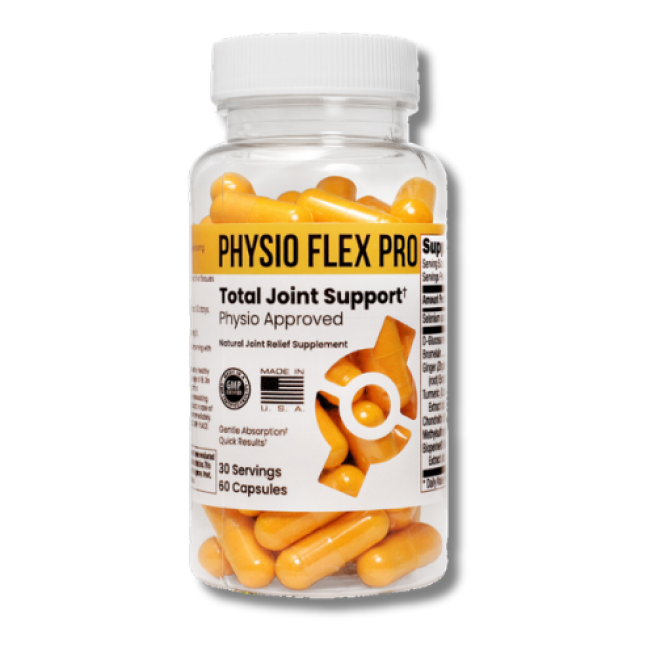Inflammatory conditions, particularly joint pain, have increased lately – but natural remedies like boswellia and turmeric have been making waves for their powerful efficiency in alleviating these conditions. But which of these remedies is more powerful and offers the most benefits?
Today, we’re doing a comparative analysis between boswellia vs. turmeric to see whose benefits offer greater protection against inflammatory problems.
Boswellia: An Overview

Boswellia is an herbal extract from the Boswellia serrata tree whose usage dates back to Biblical times when it was commonly used as frankincense. It’s also been used medicinally, with the sap, bark, and other plant parts of the Boswellia serrata tree being consumed for therapeutic purposes for centuries.
Boswellic acids are the active compounds of frankincense, and AKBA or 3-O-acetyl-11-keto-β-boswellic acid is the most important and powerful acid among them. Some studies have shown that using this acid can help improve and sharpen one’s cognition and enhance memory among animals and humans.
Studies show that boswellia has strong anti-inflammatory properties and may effectively treat inflammatory conditions like osteoarthritis, rheumatoid arthritis, and inflammatory bowel disease. It also works as an effective analgesic, protecting joint cartilage from damage and degradation.
Supplements containing Boswellia serrata extracts are widely available. They’re vegan/vegetarian and are gluten-free, making them suitable for various diets.
Turmeric: An Overview

Turmeric (Curcuma longa) is a perennial, herbaceous flowering plant native to the Indian subcontinent and Southeast Asia and comes from the ginger family (Zingiberaceae). As a spice, it’s easily identifiable for its deep, golden-orange color and is used for adding color, flavor, and nutrition to foods.
Turmeric is rich in health benefits thanks to curcumin, which gives it its rich yellow hue and flavor. Curcumin is the ingredient found in turmeric, responsible for its distinct yellowish pigment and many health benefits such as pain relief, lower blood pressure, stronger gut health, and anti-inflammatory properties.
Studies show that curcumin has a powerful mitigating effect on oxidative stress and can increase the body's antioxidant levels, as demonstrated by various research studies on some turmeric supplements. Curcumin can protect the body from free radicals and upregulate antioxidative protein markers Nrf2 and HO-1, suppressing cellular oxidative stress.
Another study found that curcumin could help ease osteoarthritis pain. The research involved people with knee osteoarthritis symptoms and yielded optimal results with fewer side effects among those who took curcumin and lost nearly 2% of their body weight in a month.
Comparative Analysis: Boswellia vs Turmeric
Various studies compare the efficacy of Boswellia and Turmeric in treating inflammation and joint pain.
Bioavailability
Despite its reputed benefits, the therapeutic potential of curcumin is still debated due to its relatively poor bioavailability in humans, even when administered at a high dosage. The poor bioavailability can be attributed to factors like low absorption by the small intestine, extensive reductive and conjugative metabolism in the liver, and elimination through the gall bladder.
On the other hand, boswellic acids, the active compounds of boswellia, known for their anti-inflammatory effects, also suffer from poor bioavailability because of their hydrophobicity and poor water solubility.
Ultimately, if one decides to take either boswellia or turmeric, one would need to take other substances, like piperine, to increase their bioavailability.
Anti-Inflammatory Benefits
Between turmeric and boswellia, turmeric is more widely known and studied for its anti-inflammatory effects. In comparison, research on Boswellia’s effects is less available and less popular than turmeric. However, some studies have found that long-term usage of Boswellia for patients with osteoarthritis can be just as safe and effective in combatting its inflammatory effects and other symptoms.
Risk of Side Effects
Both turmeric and boswellia are considered generally safe and have a low incidence of side effects. Both substances' most commonly reported side effects include headaches, dizziness, nausea, stomach upset, and bloating.
However, In terms of drug interactions, boswellia has no known serious, moderate, or mild interactions with other drugs. Conversely, turmeric interacts with anticoagulant/antiplatelet drugs, which slow blood clotting. Turmeric might slow blood clotting and increase the risk of bruising and bleeding. Taking turmeric with diabetes medications might cause blood sugar to drop too low, while turmeric’s antioxidant properties can diminish the effects of anti-cancer medications.
Turmeric can also interact with sulfasalazine, estrogen, immunosuppressive drugs, and certain antibiotics.
Boswellia & Turmeric – Better Together?
Despite having distinct chemical structures, curcuminoids, and boswellic gum resin have long been used in Ayurvedic medicine to relieve people suffering from inflammatory and degenerative health conditions.
Recent research studied the possibility of a synergistic effect between turmeric and boswellia for treating inflammation and osteoarthritis pain management and concluded that combining curcumin and boswellia extracts increases the efficacy of the treatment of osteoarthritis and that they can prevent further degradation of cartilage.
One study found that curcuminoid and boswellia formulations could be a valuable treatment for knee osteoarthritis since the combination could relieve symptoms while reducing safety risks, while others found that curcuminoid and boswellia formulations may stop or slow the catabolic actions of key inflammatory mediators in the early stages of osteoarthritis, and could continue to block the inflammatory pathways involved with its progression.
How to Consume Boswellia & Turmeric
Recommended Dosages and Forms
For Turmeric
Turmeric is available in capsules, powders, and syrups. You can also enjoy it as part of your diet or enjoy it as a tea.
Turmeric could be beneficial in doses ranging from 500–2,000 milligrams daily and safely go at doses as high as 4000 to 8000 mg/daily, depending on the condition one is taking turmeric for.
You can divide your daily turmeric dose into two doses and take them 8 to 12 hours apart to help increase absorption and keep turmeric levels steady in the body.
Food helps the body absorb turmeric, so it should always be taken before or after a meal or a large, fatty snack. Curcumin is also fat-soluble, which means it dissolves in fats, so when turmeric is eaten with a source of fat, the curcuminoids attach to the fats, making them more absorbable by the gut.
For Boswellia
Boswellia is available in pill or capsule form or used topically. Many Boswellia supplements are gluten-free, vegan, or vegetarian, making them an acceptable choice for various diets.
General dosing guidelines suggest taking 300–500 milligrams (mg) orally up to three times a day, though the dosage may differ depending on the condition a person is taking boswellia for.
Taking Boswellia extract with a high-fat meal is recommendable to increase the absorption/ bioavailability of boswellic acids.
Always follow the prescribed daily amount and never go below or beyond the limit unless authorized by your healthcare provider.
Precautions
For Boswellia
Avoid boswellia if you are pregnant or breastfeeding. Don’t take boswellia concurrently with other medications unless specifically prescribed by a healthcare provider.
For Turmeric
People with conditions like gallbladder problems, bleeding disorders, diabetes, gastroesophageal reflux disease (GERD), infertility, iron deficiency, liver disease, breast/prostate cancer, and irregular heartbeats are advised to avoid turmeric.
Pregnant women and those who will undergo surgical procedures should also avoid taking turmeric in the meantime.
Possible Interactions
For Boswellia
Boswellia has no known serious, moderate, or mild interactions with other drugs.
For Turmeric
Turmeric interacts with anticoagulant/antiplatelet drugs, diabetes medications, anti-cancer medications, sulfasalazine, estrogen, immunosuppressive drugs, and certain antibiotics.
FAQ Section
What are the primary differences between Boswellia and Turmeric in treating inflammation?
The chemical structures of curcumin and boswellic acid are quite different, which means their primary molecular targets are also different. However, these work via multiple mechanisms that eventually create synergistic interactions that treat inflammatory conditions.
Can Boswellia and Turmeric be taken together for enhanced benefits?
Yes. Combining the two creates a synergistic effect that effectively treats inflammation and osteoarthritis pain management, relieves symptoms, prevents further cartilage degradation, and blocks inflammatory pathways.
What are the side effects associated with Boswellia and Turmeric?
Both turmeric and boswellia are considered generally safe and have a low incidence of side effects. Both substances' most commonly reported side effects include headaches, dizziness, nausea, stomach upset, and bloating.
Are there any contraindications for using Boswellia or Turmeric?
Turmeric should be avoided by people with conditions like gallbladder problems, bleeding disorders, diabetes, gastroesophageal reflux disease (GERD), infertility, iron deficiency, liver disease, breast/prostate cancer, and irregular heartbeats.
Pregnant and breastfeeding women should avoid both boswellia and turmeric.
How long does it take to see results from using Boswellia or Turmeric?
Most people experience the positive effects of turmeric and boswellia within a few days to a few weeks of starting the regimen. However, some people may have different biological responses to the spice, supplement, or medication, so it may take time to see the desired results.
Conclusion
Boswellia and turmeric are both renowned natural remedies with powerful antioxidant, anti-inflammatory, and analgesic properties that combat the effects of osteoarthritis and other inflammatory conditions. Ultimately, combining the two creates a synergistic effect that yields better efficacy and results.
Combining your boswellia x turmeric journey with a balanced diet, healthy exercise, and regular consultation with your healthcare provider is a holistic and sure way to regain optimal mobility.






